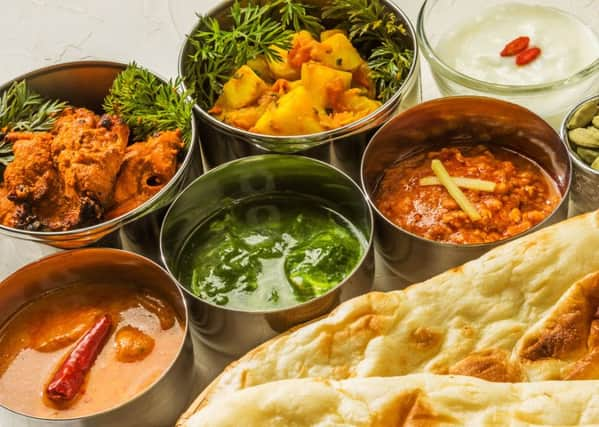Curry could help battle cancer


Curcumin, the active ingredient in turmeric - one of the basic spices used in many curries - stopped cancer cells from spreading .
But when it was combined in lab tests with silymarin, which is derived from the common herb milk thistle, the effect was even more impressive.
Advertisement
Hide AdAdvertisement
Hide AdThe researchers, writing in the Journal of Cancer, studied a line of colon cancer cells in a laboratory model.
They found treating the cells initially with curcumin, then with silymarin was more effective in fighting cancer than treating the cells with either phytochemical alone.
Dr Uthayashanker Ezekiel, associate professor of biomedical laboratory science, said: “The combination of phytochemicals inhibited colon cancer cells from multiplying and spreading.
“In addition, when the colon cancer cells were pre-exposed to curcumin and then treated with silymarin, the cells underwent a high amount of cell death.
Advertisement
Hide AdAdvertisement
Hide Ad“Phytochemicals may offer alternate therapeutic approaches to cancer treatments and avoid toxicity problems and side effects that chemotherapy can cause.”
Dr Ezekiel warned the research is a preliminary and more study will be required before scientists know if the compounds are an effective treatment for people who have colon cancer.
He saw promise in using the phytochemicals to help prevent colon cancer, which frequently is caused by lifestyle factors, such as diet.
Scientists next would need to study how the curcumin and silymarin impact the actions of molecules that cause cells to change.
Advertisement
Hide AdAdvertisement
Hide AdThen the compounds would be studied in an animal model before clinical trials take place on humans.
Dr Ezekiel said: “Concentrations of curcumin and silymarin that are too high could be harmful to people.
“We still have much to learn, and for now, it’s so much safer to add a little spice to your diet and get your curcumin from foods that contain turmeric, such as curry, rather than taking high doses of the compound.”